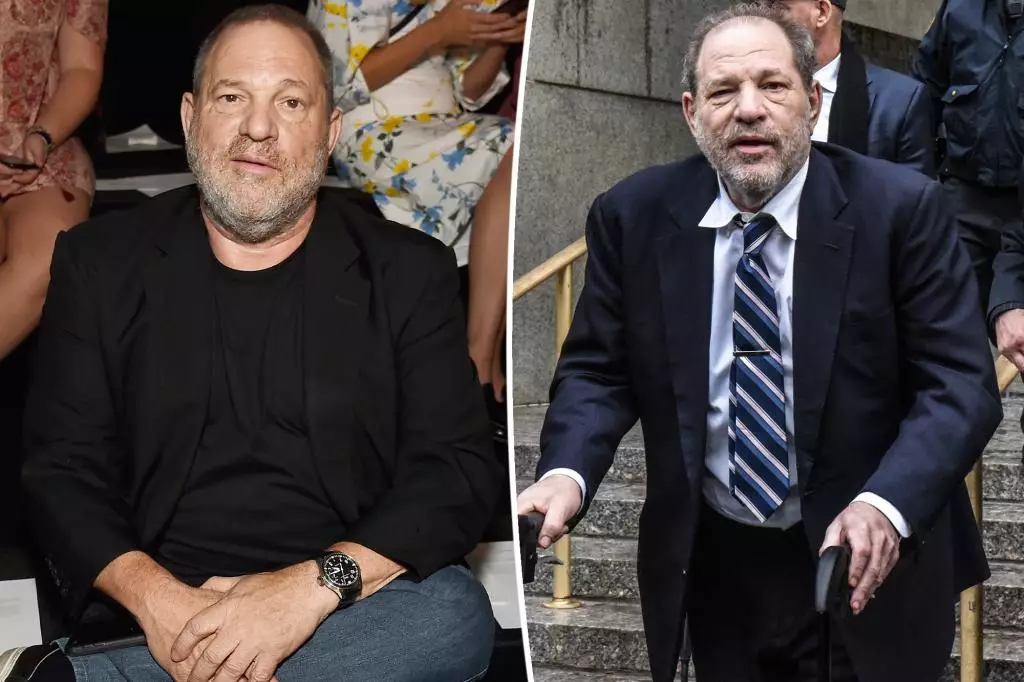Harvey Weinstein, a figure whose name became synonymous with the film industry’s darkest secrets, is once again in the spotlight due to alarming health news. The 72-year-old ex-film producer, currently serving a substantial prison sentence for multiple sexual offenses, recently received a cancer diagnosis—news that has sent ripples through media outlets and the general public alike.
While initial reports indicate that Weinstein’s representative denied the diagnosis, the story reflects a complex interplay of public interest and private despair. As his legal healthcare representative Craig Rothfeld expressed dissatisfaction with the waves of speculation surrounding Weinstein’s health, it raises questions about the balance between an individual’s privacy and the intense public scrutiny faced by notorious figures in today’s society. Despite Weinstein’s private plea for discretion, his history and the impact of his actions make this a topic of unavoidable discussion.
Once a powerful mogul in Hollywood, Harvey Weinstein’s reputation collapsed almost overnight when allegations against him began surfacing in 2017. Those accusations, initiated by actress Rose McGowan, revealed a toxic culture of assault and intimidation in the film industry that many had long feared but dared not confront. McGowan’s account of being lured under false pretenses into a hotel room in 1997 encapsulated the methods Weinstein allegedly used to exploit women.
The accounts from numerous women came forward, each sharing harrowing tales of assaults dating back decades. Those who remained silent often cited fears of career repercussions or retaliation—glaring indicators of the systemic issues that perpetuated such behaviors in Hollywood. Weinstein’s reign of terror spotlighted not only his predatory actions but also the industry’s complicity in allowing such behavior to flourish.
In March 2020, Weinstein was sentenced to 23 years in prison after being convicted of third-degree rape and criminal sexual acts. Judge James Burke’s comments during sentencing underscored the gravity of the offenses, noting that while this may have been Weinstein’s first conviction, it certainly wasn’t his first offense. Weinstein’s attempts to frame his actions as being misunderstood were met with skepticism, revealing a disconnect between his view of the events and the lived experiences of his victims.
Weinstein’s sentencing was perceived not only as a personal reckoning but also as a small victory for the #MeToo movement, which gained momentum in the wake of his allegations. In his address to the court, Weinstein expressed contrition but continued to portray himself as a victim of circumstance. “We may have different truths,” he stated, a remark that echoes the complexities of truth and justice in cases of sexual assault.
As Weinstein awaits the outcome of an ongoing retrial after his earlier conviction was overturned, the specter of his legacy continues to loom large. In addition to his New York conviction, he faced additional sentences for separate sexual assault charges that added up to 16 more years behind bars. The legal entanglements surrounding his case serve as a stark reminder of the protracted struggle for justice faced by male and female victims of sexual abuse.
Now, with his cancer diagnosis and the associated health concerns, the conversation about Weinstein shifts again, reshaping his narrative from that of a convicted criminal to a fragile human being confronting a severe health crisis. Will this diagnosis garner him sympathy, or will it further cement his status as an unrepentant figure in the eyes of those he harmed? Only time will tell.
As the public grapples with the implications of Weinstein’s life—an intersection of power, crime, and consequence—one cannot help but question how society will respond not only to the individual but to the system that allowed such abuses to go unchecked for so long. Harvey Weinstein’s cancer diagnosis is more than a personal misfortune; it is a reflection of the broader societal issues being unearthed in the wake of the #MeToo movement.

Leave a Reply